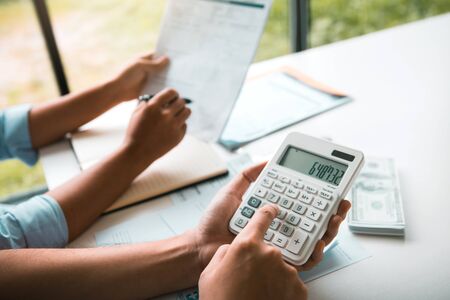Understanding Allowable Expenses
When managing your Self-Assessment tax return as a self-employed individual or freelancer in the UK, it is essential to have a clear understanding of what qualifies as an allowable expense under HMRC guidelines. Allowable expenses are costs that you incur wholly and exclusively for the purpose of running your business. Claiming these correctly can reduce your taxable profit, ultimately lowering the amount of tax you owe. Common examples include office supplies, professional fees, business-related travel, marketing costs, and a portion of household bills if you work from home. However, personal expenses or costs not directly related to your business cannot be claimed. It’s important to keep detailed records and receipts for all business-related purchases throughout the year to ensure accuracy and compliance with HMRC requirements.
Keeping Accurate Records
Maintaining precise and comprehensive records is fundamental when managing and claiming expenses on your Self-Assessment tax return. HMRC requires that you keep thorough documentation to substantiate any expenses you claim, which not only helps avoid penalties but also ensures you claim everything to which you are entitled.
Best Practices for Record-Keeping
To comply with UK regulations and streamline the tax process, it’s advisable to follow these best practices:
- Retain All Receipts and Invoices: Keep physical or digital copies of every receipt and invoice related to your business expenses. HMRC recommends keeping records for at least five years after the 31 January submission deadline of the relevant tax year.
- Organise Records by Category: File expenses under clear categories such as travel, office supplies, utilities, and professional fees. This makes completing your tax return more straightforward and supports your claims if HMRC requests evidence.
- Utilise Digital Tools: Use accounting software or apps designed for UK taxpayers to scan, store, and organise receipts in real time. Digital records are acceptable to HMRC and often make retrieval much easier.
- Record Expenses Promptly: Log your expenses as they occur rather than waiting until the end of the tax year. This reduces errors and missed claims.
Examples of Records to Keep
| Type of Expense | Required Evidence | Recommended Storage Method |
|---|---|---|
| Travel (mileage, train tickets) | Mileage logs, tickets, receipts | Digital logbook or scanned copies |
| Office Supplies | Receipts, supplier invoices | Physical file or cloud storage |
| Professional Fees (accountant, subscriptions) | Invoices, bank statements | Email archive or digital folder |
| Utilities (if working from home) | Bills, calculations showing business use percentage | Spreadsheet with scanned bills attached |
The Importance of Accuracy and Compliance
Accuracy is crucial: overestimating expenses can lead to fines, while underclaiming means missing out on legitimate tax reliefs. Make sure every claim is supported by verifiable evidence and that your record-keeping practices align with current HMRC guidelines.
![]()
3. How to Claim Expenses on Your Self-Assessment
Claiming expenses on your Self-Assessment tax return is a crucial step for UK self-employed individuals and business owners, helping you reduce your taxable profit and ensure you only pay what you owe. Here’s a step-by-step overview to guide you through the process, whether you are submitting your return online or by post.
Step 1: Gather Your Records
Before you start your tax return, collect all receipts, invoices, bank statements, and mileage logs that relate to your business expenses for the relevant tax year. HMRC recommends keeping these records for at least five years after the 31 January submission deadline.
Step 2: Log In to Your HMRC Account (Online Returns)
If you are filing online, sign in to your Government Gateway account and navigate to the Self-Assessment section. For paper returns, ensure you have the SA100 and supplementary forms (such as SA103S or SA103F for self-employment).
Step 3: Enter Your Income Details
First, report your total income for the year. This is usually your turnover or sales before any expenses are deducted.
Step 4: Input Your Allowable Expenses
When prompted, enter your allowable business expenses in the relevant sections. Online filers will find these fields clearly marked; paper form users should use the “Self-employment (short)” or “Self-employment (full)” pages as appropriate. Typical categories include office costs, travel expenses, staff costs, and other essentials directly related to running your business.
Simplified Expenses Option
You may be eligible to use simplified expenses—flat rates set by HMRC—for certain costs like vehicle usage or working from home. Select this method if it applies to streamline your claim.
Step 5: Review and Submit
Once all income and expense information is entered, review your figures carefully to ensure accuracy. Mistakes can lead to penalties or delays in processing. After checking everything, submit your return online or post your completed paper form to HMRC before the relevant deadline.
Step 6: Keep Copies of Everything
Always retain copies of your submitted tax return and supporting documents. HMRC may request evidence if they decide to review your claim in future years.
4. Common Mistakes to Avoid
When it comes to managing and claiming expenses on your Self-Assessment tax return, UK taxpayers often fall into several common traps. These mistakes can lead to rejected claims, unexpected tax bills, or even penalties from HMRC. Understanding these pitfalls is crucial for staying compliant and maximising your legitimate deductions.
Frequent Errors When Claiming Expenses
| Mistake | Description | How to Avoid |
|---|---|---|
| Poor Record Keeping | Failing to keep accurate receipts or documentation for each expense claimed. | Use digital tools or apps to track every business-related expense and store scanned copies of receipts. |
| Claiming Personal Costs | Including personal or non-business expenses in your claim. | Clearly separate business and personal spending; only claim costs that are wholly and exclusively for business use. |
| Overestimating Proportions | Misjudging the percentage of expenses (e.g., home office or vehicle costs) attributable to business use. | Calculate a realistic proportion based on actual usage (e.g., number of rooms used for work, mileage records). |
| Missing Allowable Deductions | Overlooking certain deductible expenses such as professional subscriptions or business insurance. | Familiarise yourself with HMRC’s list of allowable expenses relevant to your profession or industry. |
| Lack of Supporting Evidence | Not providing sufficient proof if HMRC requests evidence during an enquiry. | Keep detailed records and supporting documents for at least five years after the 31 January submission deadline. |
Tips for Staying Compliant with HMRC Regulations
- Review HMRC’s latest guidance annually, as rules and thresholds can change.
- If in doubt about a specific expense, consult a qualified accountant or refer to HMRC’s online resources before submitting your claim.
- Don’t round up figures; always use exact amounts from receipts or invoices.
The Importance of Accuracy and Transparency
Ensuring accuracy in your Self-Assessment is not just about avoiding penalties—it also builds credibility should you ever face an HMRC audit. Being transparent with your claims and maintaining robust records will help you navigate the process confidently each year.
5. Using Accounting Software and Apps
Efficient expense management is vital for anyone completing a Self-Assessment tax return in the UK. Leveraging accounting software and mobile apps can significantly streamline this process, reduce errors, and ensure you remain compliant with HMRC requirements. Popular solutions such as QuickBooks, Xero, and FreeAgent are specifically tailored to meet the needs of UK sole traders, freelancers, and small business owners.
Benefits of Digital Tools for Expense Management
Accounting software automates much of the expense tracking process by allowing you to link your business bank accounts, categorise transactions, and store digital copies of receipts. These tools often feature intuitive dashboards that provide real-time insights into your finances, making it easier to identify allowable expenses and keep thorough records ready for your Self-Assessment submission.
Integration with HMRC’s Making Tax Digital (MTD)
Most leading UK accounting platforms are fully compatible with HMRC’s Making Tax Digital initiative. This means you can submit your Self-Assessment tax return directly from the app or platform, ensuring compliance and reducing the risk of manual data entry mistakes. Automated reminders also help you stay on top of important deadlines so you never miss a filing date.
Choosing the Right Solution
When selecting accounting software, consider factors such as ease of use, integration with UK banks, support for expense categories recognised by HMRC, and customer support tailored for British users. Many providers offer free trials, so you can test which system best suits your workflow before committing. By integrating these tools into your daily routine, you’ll save time on paperwork and be better equipped to claim every eligible expense when filing your Self-Assessment tax return.
6. When to Seek Professional Advice
While many sole traders and self-employed individuals successfully manage their own expense claims, there are circumstances where seeking guidance from a UK accountant or tax adviser can prove invaluable. If your finances are becoming increasingly complex, for example, if you have multiple income streams, employ staff, or incur significant business expenses, professional advice ensures you claim all allowable expenses without overstepping HMRC regulations. Additionally, tax professionals are up to date with the latest changes in tax legislation and can help you optimise your claims, potentially reducing your overall tax liability.
It is also wise to consult an expert if you feel uncertain about the distinction between personal and business expenses, or if you’re unsure which records need to be kept and for how long. Mistakes or omissions on your Self-Assessment can lead to HMRC enquiries or penalties, so seeking advice can offer peace of mind that your return is accurate and compliant. For those who are newly self-employed or have recently switched to using accounting software, an initial session with a qualified adviser can set you on the right track for future years.
In summary, while DIY management works well for many, don’t hesitate to reach out for professional support when the stakes are high—particularly if you want to maximise your expense claims, minimise your tax bill, and ensure compliance with UK tax rules.


